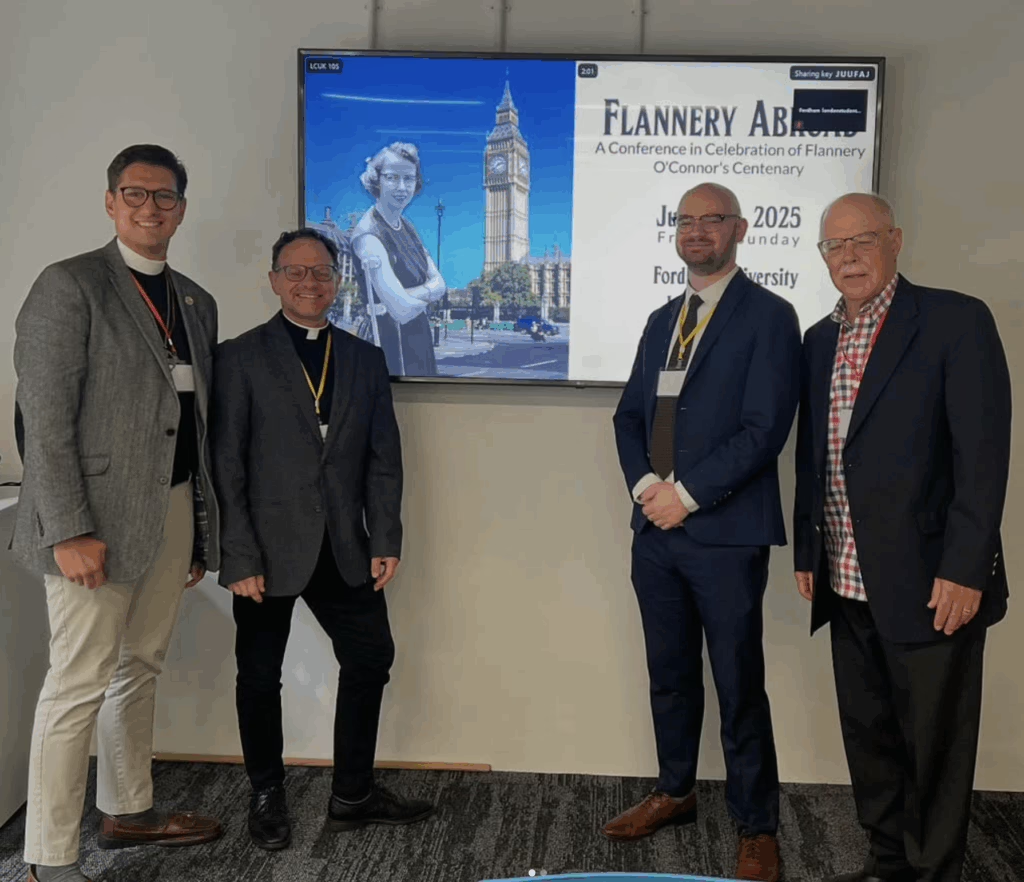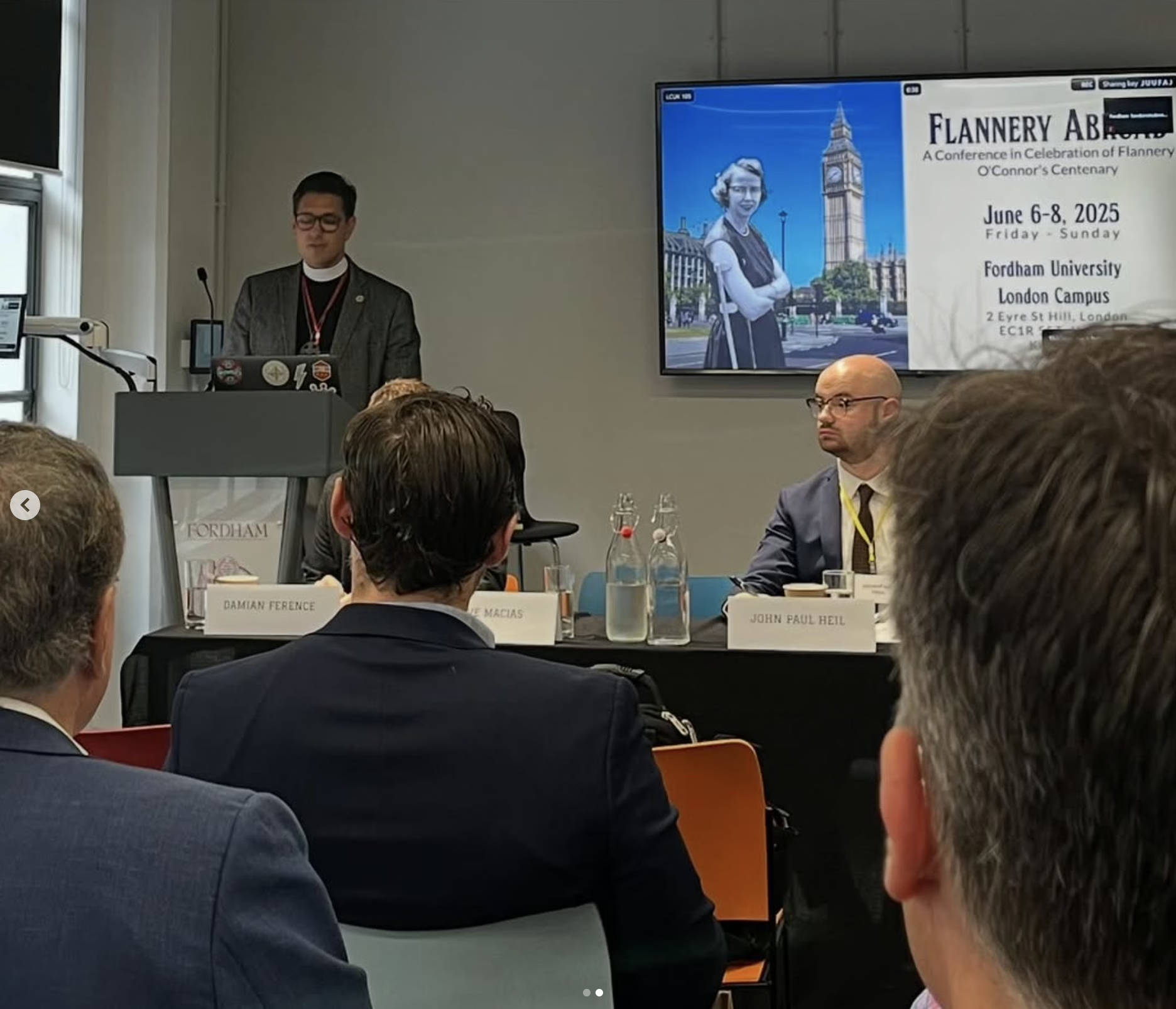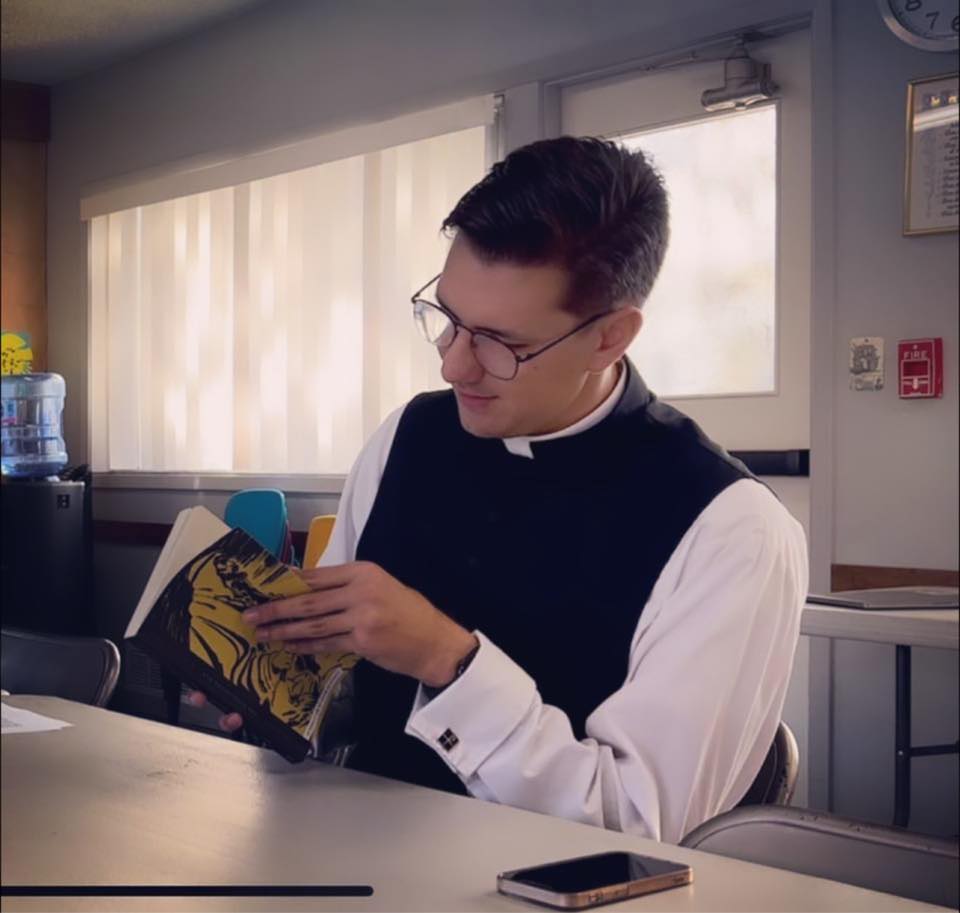This summer I had the great privilege of presenting at the Flannery Abroad Conference in London, held in celebration of Flannery O’Connor’s centenary. Nearly 100 scholars, writers, and teachers gathered at Fordham University’s London campus to explore O’Connor’s spiritual imagination and global legacy. The event was hosted by the Curran Center for American Catholic Studies, with support from Georgetown University, Loyola Chicago’s Hank Center, and the Flannery O’Connor Trust.
My panel, held Saturday morning, was titled “The Sacred and the Grotesque: The Medieval Spirituality of Flannery O’Connor and Charles Williams.” I spoke alongside:
- John Paul Heil, who presented on Martin Mosebach and the Sacramental Imagination
- Fr. Damian Ference, on how reading O’Connor and traveling abroad disorients and reorients the Christian imagination
- Craig Martell, on O’Connor’s embrace of Carmelite spirituality

Together, our conversation wove together threads of Catholic mysticism, Anglican aesthetics, and literary theology, suggesting that O’Connor’s grotesque characters are, in fact, icons of God’s disturbing grace—very much in the tradition of medieval spirituality and the Inklings’ vision of divine intrusion.
In my own remarks, I explored how both O’Connor and Charles Williams (the least known of the Inklings) see the grotesque not merely as literary flourish, but as an unveiling of divine order. I argued that their respective visions share a sacramental view of creation, where even the bizarre and brutal moments serve as occasions for grace. Williams’ “co-inherence” and O’Connor’s “violent grace” intersect in their willingness to show that God’s mercy often arrives in unsettling form.
My Paper focused on these ideas:
1. Medieval Roots of Redemption
Both Flannery O’Connor and Charles Williams draw from a medieval Christian vision—where suffering, wounds, and the grotesque are not obstacles to grace, but its very channels.
2. The Grotesque as Christological
Just as Christ descended into death and hell to redeem humanity, O’Connor’s grotesque characters often undergo violent or disturbing experiences that open the door to grace.
3. Charles Williams & Co-inherence
Williams’ theology of co-inherence teaches that we bear one another’s burdens mystically—redemptive suffering is shared, not isolated. This gives a spiritual logic to grotesque fiction.
4. Redemption in Brokenness
Both writers insist that salvation doesn’t bypass pain—it works through it. In the end, even the freaks, the failures, and the blind may point us, however dimly, toward Bethlehem’s light.
All inspired by my favorite Flannery quote:
🕯️ “All human nature vigorously resists grace because grace changes us and the change is painful.” – Flannery O’Connor



Leave a Reply